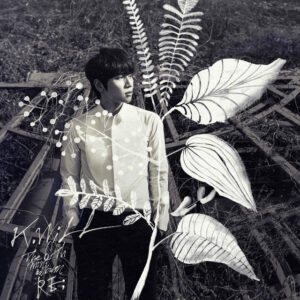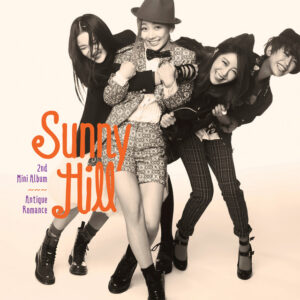
Weddings are often seen as the pinnacle of romance. They are the event that transforms a relationship into something permanent, that shifts from being merely dating into life partners; two people ready to face the world as a unit bound by love, god, and the almighty difficulties of divorce. Books, movies, and tv shows all utilize a wedding as a perfect ending, the natural conclusion of a love story. Yet, weddings rarely make an appearance in music, which is surprising considering that the love song is the default setting of pop music.
Part of this can be attributed to the perceptions of love versus marriage, namely that love is romantic and marriage is not. Marriage is built on the grind of life, the long slog of the everyday. It does not incite the same feelings of passion, devotion, or joy as effervescent but all-encompassing as love. Honestly, the most common way weddings appear in music is if it’s the ex’s wedding. One of the best-known examples is Taeyang’s “Wedding Dress”, where he’s forced to watch the love of his life marry another man.
Baby, please don’t take his hand
Coz you should be my lady
I’ve been waiting for you for so long please look at me nowWhen the music starts you will vow to spend
The rest of your life with him
How I prayed every night
This day would never come
This lends a wedding the needed pathos that marriage does not have. It plays to the dramatic irony of seeing the person you love take that final step with someone else and you can only watch. Taeyang is ruminating on his regrets and self-loathing, admitting only to himself that he selfishly wants things to end badly for his ex so he can have another shot. Yet, on the surface, he is smiling and supportive, with the implication that he is to blame for their relationship failing as a cruel yet potent undercurrent.
The other common way for marriage to enter pop songs is as an impulsive and probably terrible idea. After all, weddings are extremely romantic, and typically seen as a culmination, with not much thought given to the aftermath. Shinee’s “Marry You” is one such impulsive proposal.
Girl I wanna marry you
Right here right now yeah
I wanna marry you
Girl I wanna marry you
Right here right now
I wanna marry you

It is a gorgeous song, with Shinee leaning into their R&B sides and the vocals melding perfectly. And yet, there is a clear lack of thought present. No ring, no plans, no mention of the next day; Shinee are simply overwhelmed with their love for their partner and feel the only way to express the depth of their feelings is to immediately get married. It is a perspective that is based entirely on the vows–that glorious moment when you swear to love someone forever, binding yourselves for all to see. Yet, the relationship comes off as infatuation more than anything, someone caught up in the bliss of the honeymoon phase and thinks a literal honeymoon will preserve it.
This makes “Marry You” by K. Will stand out for its understanding of the stakes. Rather than impulse or regret, his take actually reflects the commitment of marriage over the fun of a wedding.
My wish is to be with you always
Will you marry me? Will you marry me?
Make me the happiest man alive
Will you marry me? Will you marry me?

While he still uses many of the touchstones of a wedding–the bouquet, the dress, and the ring–the framing is very different. He draws a picture of the wedding as a celebration, something secondary to what really matters. K. Will highlights the long-term aspect of marriage, putting their future happiness above whatever love he feels proposing. It also brings his partner more fully into the conversation. Rather than being entirely about his wants, K. Will has made himself vulnerable by distinctly asking his girlfriend to marry him, and ensuring it would make her as happy as himself.
Of course, there is one other major trend in songs about weddings: they are almost always from the male perspective. This stands out as women are often seen as being more marriage-focused. Men bringing up marriage is seen as proof of their devotion, while women who bring it up are stereotyped as clingy, pushy, or boy-crazy. One of the few female perspectives is “Marry Me?” by Sunny Hill.
It’s a wonderful day, It’s a beautiful day
Let’s walk looking for the same direction
Whenever it’s harsh or you get tired, come to me and be hugged
I will stand by your side

Unlike any of the previous songs, Sunny Hill view marriage not as an event, but as a continuation. They and their partner already live a fairly domestic life, with getting married as the next step. The male performers all viewed marriage as a watershed in their relationships, something that would change things. Sunny Hill’s feminine view paints marriage as merely life. To them, split plans and small fights are as much a part of marriage as happiness, and they are right. After all, if you are expected to want marriage, you probably think about what it entails than someone who doesn’t.
Weddings and marriage will likely continue to be fairly sparse subjects in pop music. It is an intrinsically shallow genre, while marriage adds some inherent weight. Yet, whenever the subject does arise, it often acts as a mirror to society’s views on the topic, reflecting back bias and opinions on what wedding bells truly mean.
(Lyrics via ColorCodedLyrics [1][2][3], LyricsTranslate, YouTube. Images via YG Entertainment, SM Entertainment, Starship Entertainment, LOEN Entertainment)


